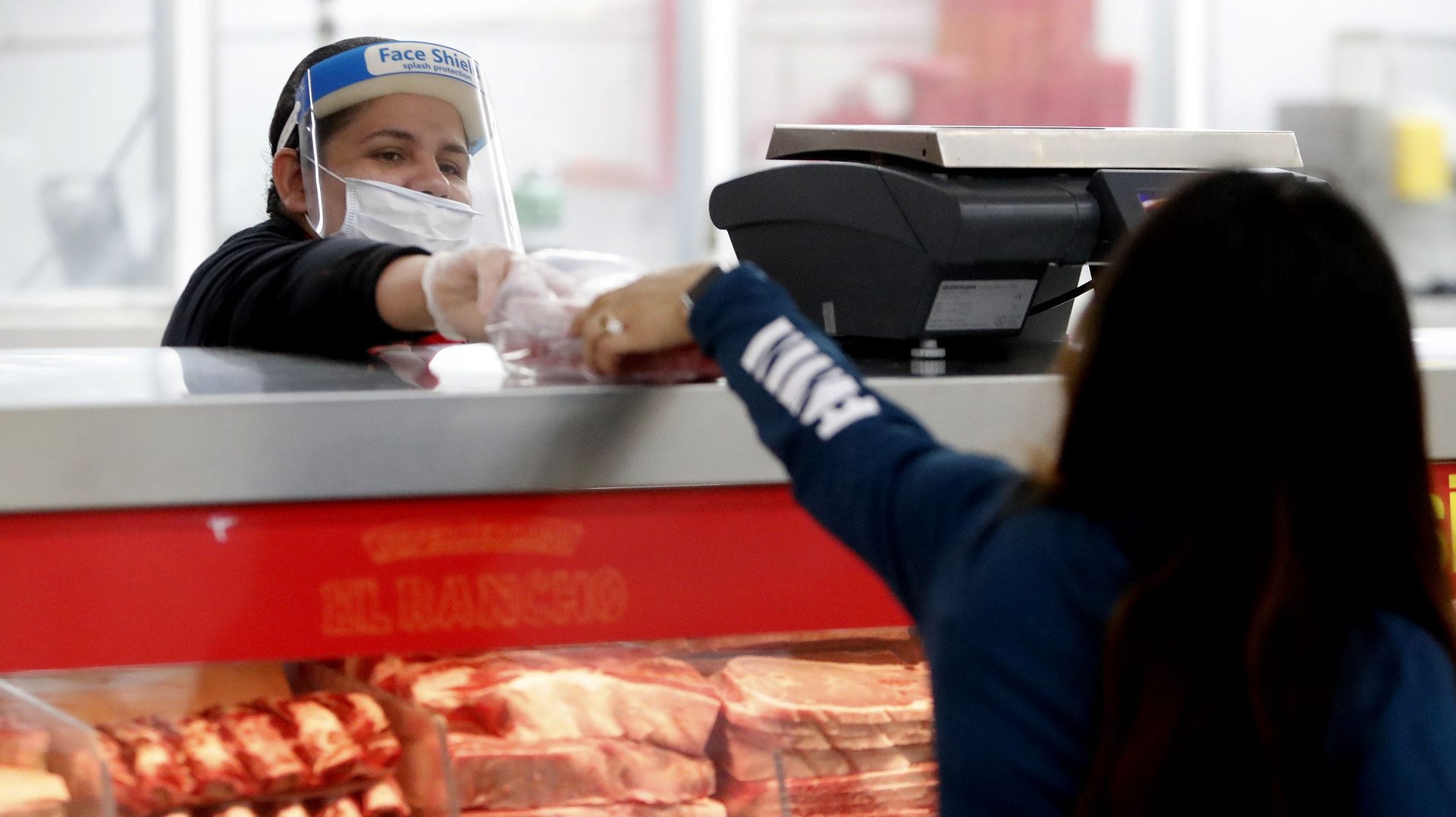US grocery workers risk coronavirus daily, and most don’t have paid sick leave
Every day at 7pm, in New York and other cities, isolated people open their windows and clap loudly to celebrate the efforts of essential workers: Doctors, nurses, first responders, but also the people whose work keeps the world, beyond the healthcare system, going round.


Every day at 7pm, in New York and other cities, isolated people open their windows and clap loudly to celebrate the efforts of essential workers: Doctors, nurses, first responders, but also the people whose work keeps the world, beyond the healthcare system, going round.
Among them are grocery store workers, who face the daily threat of coronavirus as they work indoors and inevitably come into contact with, or find themselves in close proximity of, a relentless multitude of patrons. While public displays of appreciation for their sacrifice abound, they are unlikely to help much when grocery workers have to deal with health issues: In most cases, sick time off is unlikely to be paid for.
A study released (pdf) by the Shift Project at the University of California, Berkeley, which collects and analyzes data on worker conditions and wellbeing, surveyed 30,000 hourly workers in grocery stores, pharmacies, and other frontline occupations in the US, and found that only 8% of them could take off at least 14 days—the length of a recommended Covid-19 quarantine—and fewer still even more.
Financially speaking, grocery store chains have been doing relatively well through the coronavirus crisis, and their share prices so far have lost less than other large corporations, although they are facing serious logistical issues, including overwhelmed supply chains and a dwindling workforce disproportionately affected by the virus.
In the US, dozens of grocery workers have died because of Covid-19, and thousands have fallen ill. The staff shortages are pushing companies toward hiring sprees, with the likes of Walmart and Costco recruiting thousands to replenish the fallen ranks.
To deal with the crisis, several companies (including Costco, Target, Albertsons, and Whole Foods) have added a hazard pay bonus—or a “Hero Bonus,” as grocery store giant Kroger puts it—of $2 per hour for grocery workers, to be paid against the hours worked during the epidemic. But some grocery workers have found the bonus “insulting,” and policy experts found it to be insufficient to bring most workers up to a living wage, considering most grocery store employees make minimum or near-minimum wage.
The increase would also scarcely make up for the lost wages of workers who get sick, if they don’t have access to paid sick leave—which, it turns out, is also a proxy for overall economic distress. The report found that 27% of workers who don’t have such access also have skipped medical care because of affordability issues, 34% of them have faced hunger hardship, and 45% would not have $400 on hand to face an emergency. Women tend to face even harder conditions than their male counterparts.
While about 45% of workers in groceries, pharmacies, and the like have some access to paid sick leave (particularly when they are members of unions), very few can count on two weeks off, not to mention longer. While this provision would be important in a regular time, it’s crucial during a pandemic—both for the safety of workers and those who surround them.
In the US, the Federal Families First Coronavirus Response Act, approved in March, mandates paid sick and family leave for employees dealing with coronavirus but exempts businesses with more than 500 employees from the requirement, leaving about 85% of frontline workers out of the provision. While some employers have independently offered to expand their sick leave policies, there is no legal requirement for them to do so.